Understanding solar water heater systems is vital for anyone considering a sustainable and efficient way to heat their water. In this guide, you will explore the key components, workings, and benefits of these systems, empowering you to make informed decisions for your home. Whether you are interested in reducing your energy bills or lowering your carbon footprint, this beginner’s guide will provide you with the knowledge you need to embrace solar technology and enhance your quality of life.
Key Takeaways:
- Functionality: Solar water heaters use sunlight to heat water, which can be utilized for domestic, commercial, and industrial purposes.
- Components: Key elements include collectors (solar panels), storage tanks, and circulation systems that work together to efficiently heat and transfer water.
- Types: There are mainly two types of solar water heaters: active systems (with pumps) and passive systems (without pumps), each with distinct advantages and installation requirements.
- Energy Efficiency: Utilizing solar water heaters can significantly reduce energy bills and reliance on fossil fuels, making them an eco-friendly option.
- Installation Considerations: Proper installation angle and orientation, exposure to sunlight, and adequate sizing are crucial for maximizing efficiency and performance.
- Maintenance: Solar water heating systems generally require minimal maintenance, but regular checks on the system’s components are necessary for longevity.
- Incentives: Many regions offer government incentives, rebates, and tax credits to promote the installation of solar water heaters, making them more financially accessible.
Types of Solar Water Heater Systems
Before stepping into the specifics, it’s vital to understand that solar water heater systems primarily fall into two categories: active and passive systems. Each comes with its own advantages and suitability depending on your needs and circumstances.
- Active Solar Water Heater Systems
- Passive Solar Water Heater Systems
- Direct Circulation Systems
- Indirect Circulation Systems
This understanding can help you choose the best system for your home.
| Type | Description |
| Active Systems | Use pumps and controls to distribute heat. |
| Passive Systems | Rely on natural convection to circulate water. |
| Direct Circulation | Circulate potable water directly through collectors. |
| Indirect Circulation | Use a non-freezing heat transfer fluid. |
Active Systems
Systems that fall into this category utilize mechanical devices such as pumps and controllers to circulate water from the collectors to the storage tank. This technology is advantageous in climates where temperatures can drop significantly, as the system can operate effectively regardless of outside conditions.
Passive Systems
Types of passive solar water heating systems are designed to utilize natural convective heat transfer. This means that as water heats up, it rises naturally, pushing cooler water down to be heated. This simplicity often results in lower installation costs and reduced maintenance needs.
This category of systems is ideal for areas with mild climates, as they are less susceptible to freezing and do not require additional energy for circulation.
Direct Circulation Systems
An example of an active system, direct circulation systems, push potable water directly from the storage tank through the collectors. These systems are best suited for areas where temperatures remain above freezing, allowing for optimum performance.
Systems that utilize direct circulation are typically quicker and more efficient since they don’t involve a secondary fluid for heat exchange, but they do require a reliable supply of potable water throughout the year.
Indirect Circulation Systems
Passive indirect circulation systems function differently by utilizing a heat transfer fluid that is moved through a closed loop system, warming the potable water via a heat exchanger. This method efficiently protects against freezing conditions.
With these systems, you can optimize your solar energy usage even in colder climates, as the fluid can maintain higher temperatures without freezing, ensuring that your home always has hot water available when you need it.
Factors to Consider
It’s crucial to evaluate several factors to determine the right solar water heater system for your needs. These factors can significantly impact efficiency, costs, and overall effectiveness. Consider the following:
- Climate and Location
- Household Hot Water Needs
- Roof Space and Orientation
- Installation Costs
The right considerations will help you optimize your solar water heating system for your home.
Climate and Location
Even in sunny regions, variations in climate and seasonal changes can affect the efficiency of your solar water heater. Ideally, you want to assess the average sunlight hours in your area and how climate fluctuations may impact the performance of your system throughout the year.
Household Hot Water Needs
On average, a household’s hot water usage can vary significantly based on family size and lifestyle. It’s crucial to analyze your daily hot water consumption patterns, including showers, laundry, and dishwashing, to ensure your solar water heater can meet your requirements.
To accurately gauge your household’s hot water needs, consider how many people live in your home and their daily routines. Installing a system that generates enough hot water is crucial to prevent running out during peak usage times. For larger households, a system with a higher capacity or supplementary heating options might be necessary to maintain comfort and convenience.
Roof Space and Orientation
Household roof space and its orientation toward the sun play crucial roles in the effectiveness of solar water heater systems. Ensure you have adequate space to mount solar collectors and that your roof faces the right direction to maximize sunlight exposure throughout the day.
Understanding your roof’s layout and slope can help determine the best positioning for solar collectors. Ideally, a south-facing roof with minimal shading will yield optimal results, allowing the collectors to harness as much solar energy as possible. If your options are limited, you may need to explore alternative mounting systems or locations.
Installation Costs
An important aspect of planning for your solar water heater system is understanding the installation costs involved. These costs can vary based on the system type, complexity of the installation, and local labor rates.
Space might be a consideration, as larger systems generally require more initial investment. Additionally, be aware of potential maintenance and operational costs to ensure your solar water heater remains efficient long-term. Always consider getting multiple quotes and discussing financing options to find the best fit for your budget while maximizing savings in the long run.
Tips for Choosing the Right System
Many factors come into play when selecting the ideal solar water heater system for your home. Take the time to assess your specific needs to ensure you invest wisely. Here are some tips to guide you:
- Evaluate your hot water needs.
- Research the types of solar water heaters available.
- Look for systems with high efficiency ratings.
- Consider your local climate and location.
- Check for available incentives and rebates.
- Consult with professionals for expert advice.
Thou will find that each consideration can greatly influence your choice.
Assessing Efficiency Ratings
Ratings play a crucial role in determining the long-term performance of your solar water heater system. Look for solar collectors with the highest efficiency ratings, typically measured by the Solar Rating and Certification Corporation (SRCC) or similar standards. A higher rating often translates to better energy production, which can lead to lower energy bills over time.
Understanding Maintenance Requirements
Tips for maintaining your solar water heater include routine checks and inspections. Regular maintenance will ensure optimal performance and longevity of your system, preventing costly repairs. It’s advisable to inspect the filters, check for leaks, and evaluate the condition of the system annually.
A well-maintained system not only provides better efficiency but also extends its lifespan. By staying on top of your maintenance tasks, you can enjoy uninterrupted hot water supply while reaping the benefits of solar technology.
Considering Local Incentives
Assessing local incentives can significantly impact your overall investment in a solar water heater system. Various government programs and state tax credits may be available to help offset installation costs, making solar solutions more accessible and affordable for homeowners.
To maximize your savings, research all available financial incentives in your area before making a decision. Understanding these incentives may also help you choose a system that aligns with your budget while benefiting from community support for renewable energy initiatives.
Consulting Professionals
Understanding the importance of professional consultation is vital in choosing the right solar water heater system. Professionals can assess your property, evaluate your hot water needs, and recommend systems best suited for your lifestyle and local climate.
Requirements for installation are also best understood through professional guidance. Engaging with experts will ensure that you are not only selecting a quality system but also adhering to local regulations and obtaining optimal design and efficiency.
Step-by-Step Installation Process
Despite the complexities involved in installing a solar water heater system, breaking it down into manageable steps can make the process much simpler. Below is a detailed table outlining the steps needed for installation, along with important considerations.
| Step | Details |
|---|---|
| 1. Pre-Installation Planning | Assess your energy needs, select the right type of system, and check local regulations. |
| 2. Gathering Materials | Collect all necessary tools and materials required for installation. |
| 3. Installation of Collectors | Mount the solar collectors on your roof or an optimal location for sunlight exposure. |
| 4. Connecting to the Existing Water System | Integrate the solar water heater system with your home’s plumbing. |
| 5. Finalizing and Testing the System | Check for any leaks, ensure the system operates correctly, and perform any necessary adjustments. |
Pre-Installation Planning
StepbyStep planning is crucial for a successful solar water heater installation. Begin by evaluating your household’s hot water needs, such as usage patterns and peak demands. Next, research the types of systems available, including active and passive options, and consider any local building codes or permits that may apply. This ensures that you have a clear pathway toward both compliance and efficiency.
Gathering Materials
Some important materials you’ll need include solar collectors, a storage tank, pipes, pumps, and insulation. Be sure to gather all components before you begin your installation to avoid delays.
To simplify your installation, make a comprehensive list of materials. This list typically includes solar panels, suitable storage tanks, a circulation pump, plumbing fixtures, and insulation materials. Additionally, having the right tools, such as wrenches and screwdrivers, will facilitate a smoother installation process, ensuring you are well-prepared for each step.
Installation of Collectors
Pre-Installation best practices suggest that you position your solar collectors for optimal sun exposure; ideally, this means facing them south in the northern hemisphere. Ensure mounting hardware is securely fastened to withstand weather conditions.
With careful consideration, the angle at which you mount your solar collectors affects performance. Aim for an angle between 30 to 50 degrees, depending on your geographical location. Securely fasten the collectors to your roof or chosen location, making sure to follow all manufacturer instructions for maximum efficiency and durability.
Connecting to the Existing Water System
For a seamless integration with your home’s plumbing, you may need to install a few additional components, such as check valves and temperature sensors. This step is critical for ensuring efficient operation.
Gathering the right connectors and plumbing fittings is important to connect your solar water heater to the existing water system. This may include flexible piping, T-connectors, or shut-off valves to ensure proper water flow, thus allowing your system to work harmoniously with your conventional water heating setup.
Finalizing and Testing the System
One of your last steps is to inspect your entire installation carefully for any leaks or faulty connections. Once everything is secure, fill the system with water and run it for a test cycle.
The testing phase is crucial; ensure the system heats water to the desired temperature and monitor it for a few days. Fine-tune any settings and check that all components function correctly, guaranteeing a reliable and efficient solar water heater system for your home.
Pros and Cons of Solar Water Heater Systems
Once again, it’s important to weigh the advantages and disadvantages of solar water heating systems before making your decision. While these systems can provide numerous benefits, they also come with some limitations that you should consider. By evaluating both sides, you can better determine if this investment aligns with your needs and priorities.
Pros and Cons of Solar Water Heater Systems
| Pros | Cons |
|---|---|
| 1. Energy Savings | 1. High Initial Cost |
| 2. Environmentally Friendly | 2. Weather Dependency |
| 3. Low Operating Costs | 3. Space Requirements |
| 4. Incentives and Rebates | 4. Maintenance Requirements |
| 5. Increased Home Value | 5. Performance in Extremes |
When considering the pros of solar water heaters, it’s clear that they can lead to substantial energy savings over time. By harnessing the sun’s energy, you can significantly reduce your electricity bills while also contributing positively to the environment by lowering your carbon footprint.
Moreover, operating costs are generally low once a solar water heater system is installed, and you may qualify for various incentives and rebates that make the initial purchase more affordable. Additionally, the installation of a solar water heater can enhance the value of your home, making it an appealing option should you decide to sell in the future.
On the flip side, one of the main cons is the high initial investment required to install a solar water heater system. You need to factor in the upfront costs, which can be substantial. Compounding this, the system’s efficiency can vary depending on the weather, meaning that during cloudy or rainy periods, your solar heater might underperform.
Space is another consideration; solar panels may require more roof space than you can allocate. Maintenance, while typically low, is still necessary to ensure the system operates efficiently over time. Lastly, in extreme cold or hot weather conditions, solar water heater systems may not perform as well as traditional methods, which could affect your hot water supply.
In the final analysis, you need to reflect on these factors—balancing the pros and cons of a solar water heating system will help you make an informed choice that fits your lifestyle and budget.
Summing up
Conclusively, understanding solar water heater systems empowers you to make informed decisions that could enhance your energy efficiency and reduce your utility bills. By grasping the fundamental components, types, and operational principles of these systems, you can select the best solution tailored to your needs. As you explore this renewable energy option, consider factors such as installation, maintenance, and local climate to optimize your water heating efforts. Transitioning to solar energy not only benefits your finances but also contributes positively to the environment.
FAQ
Q: What is a solar water heater system and how does it work?
A: A solar water heater system uses sunlight to heat water for residential or commercial use. It typically consists of solar collectors, a storage tank, and a circulation system. The solar collectors absorb sunlight and convert it into heat, which is then transferred to the water in the storage tank. The heated water can be used for various applications, including domestic hot water supply, space heating, and swimming pool heating.
Q: What are the different types of solar water heater systems?
A: There are primarily two types of solar water heater systems: active and passive. Active systems use pumps and controls to circulate water, making them more efficient and reliable. They can be further divided into direct and indirect systems. Passive systems rely on natural convection and have fewer components, making them simpler but potentially less efficient in colder climates. Another classification is based on the collector type: flat-plate collectors and evacuated tube collectors.
Q: How much does it cost to install a solar water heater system?
A: The cost of installing a solar water heater system can vary widely depending on the type, size, and installation complexity. On average, the cost can range from $2,000 to $5,000 for a typical residential system. Factors that can influence the overall cost include the specific equipment used, labor costs, local solar incentives or rebates, and the complexity of the installation site. Investing in a solar water heater system can lead to significant long-term savings on energy bills.
Q: How much energy can I save with a solar water heater?
A: The energy savings from a solar water heater system can vary based on factors such as system size, geographic location, and usage patterns. Generally, homeowners can expect to save between 50% to 80% on their water heating bills. In regions with abundant sunlight, the potential savings can be even higher. To maximize energy savings, it is important to size the system correctly and ensure proper installation.
Q: Can solar water heater systems work in cloudy or cold climates?
A: Yes, solar water heater systems can still function in cloudy or cold climates, although their efficiency may be reduced. Active systems with freeze protection and insulated storage tanks can operate effectively in cooler temperatures. Additionally, solar collectors are designed to absorb UV rays even on cloudy days, so they can still generate heat. Homeowners in cooler climates may want to consider selecting a high-efficiency collector and integrating a backup heating system for cold days.
Q: What maintenance is required for solar water heater systems?
A: Solar water heater systems require minimal maintenance compared to traditional water heating systems. Routine check-ups, such as inspecting the solar collectors for dirt and damage, checking the insulation, and ensuring proper fluid levels in the system, are recommended. Additionally, regular flushing of the storage tank may be necessary to prevent sediment buildup. Homeowners should consult with a professional to determine an appropriate maintenance schedule based on their system type and local conditions.
Q: Are there financial incentives for installing solar water heater systems?
A: Yes, many governments and local utilities offer financial incentives to promote the use of solar water heater systems. These can include tax credits, rebates, or grants designed to offset installation costs. Programs differ by location, so it’s important to research available incentives in your area. Additionally, some states have specific net metering policies that allow homeowners to receive credits for the excess energy generated by their solar systems.



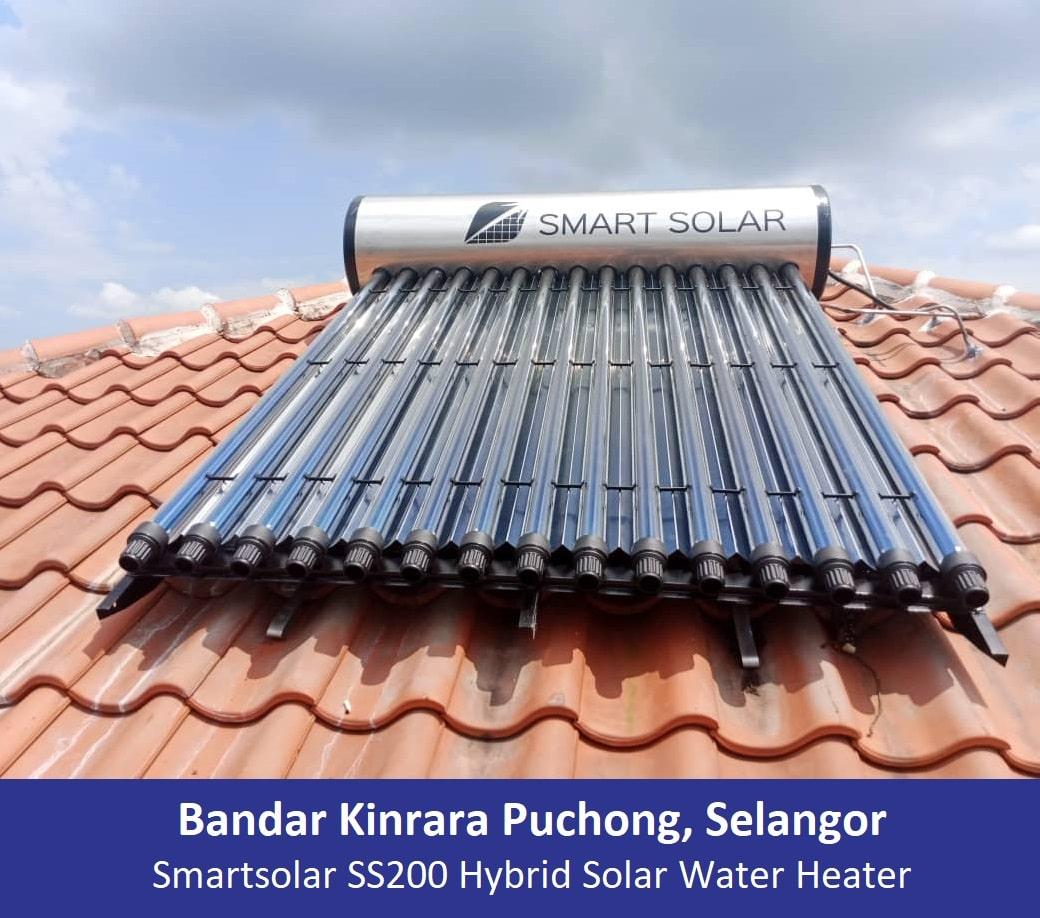
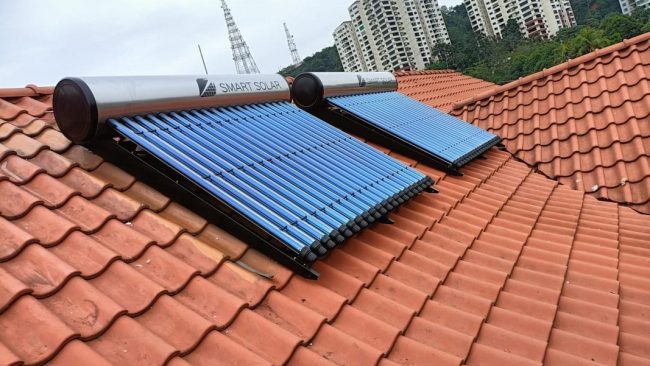
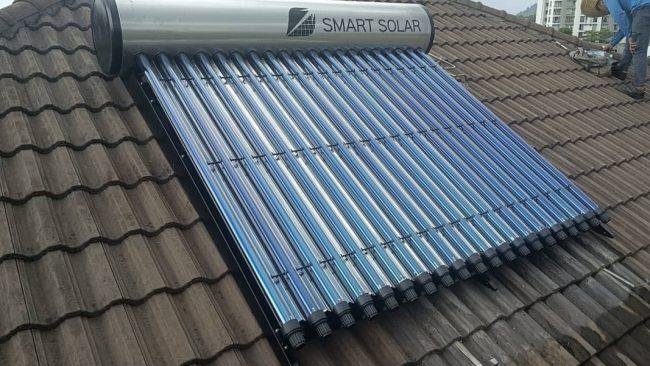
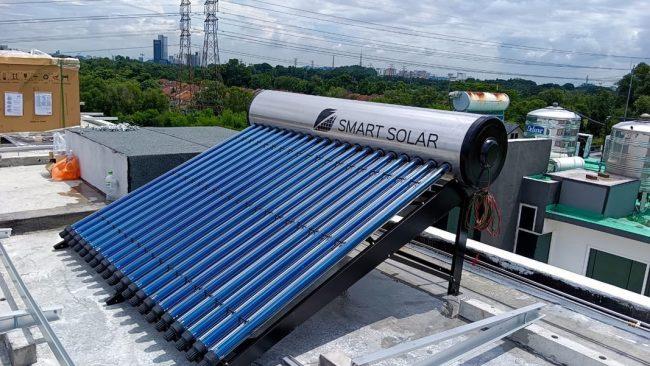
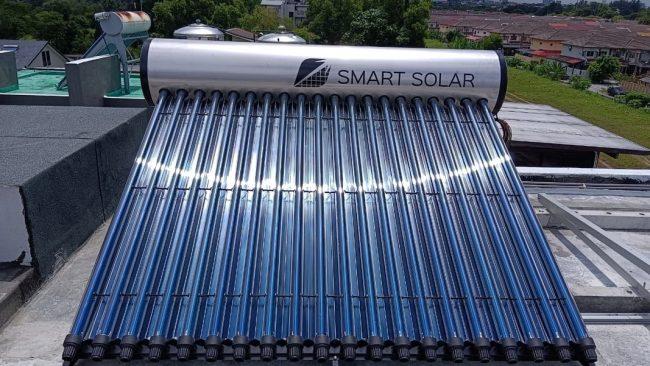
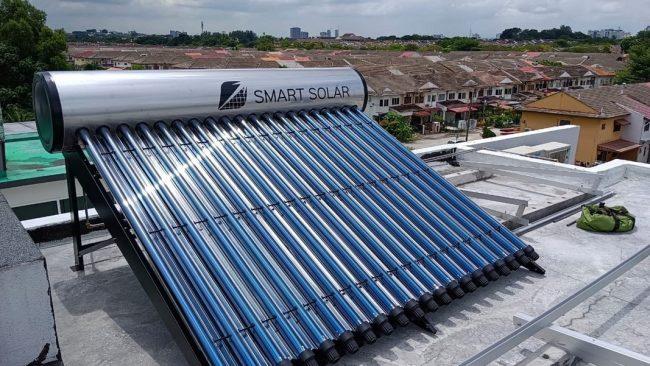
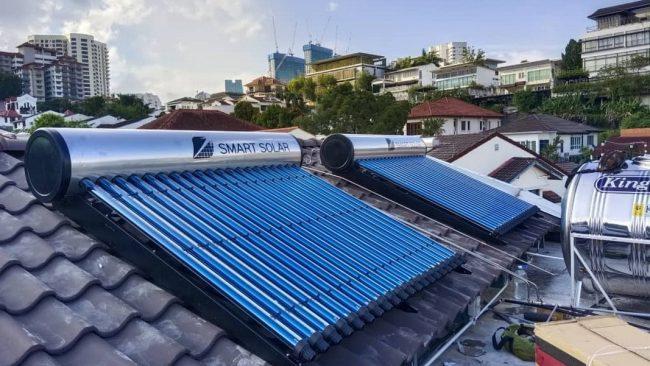
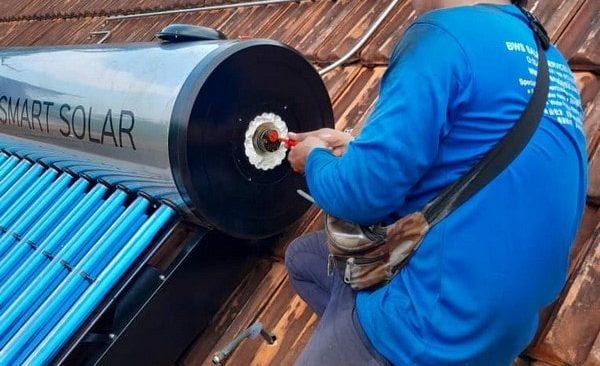


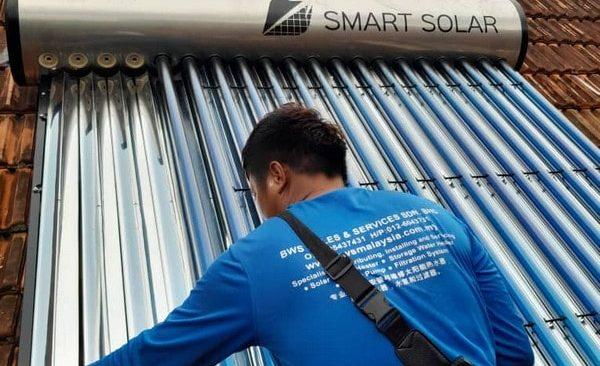
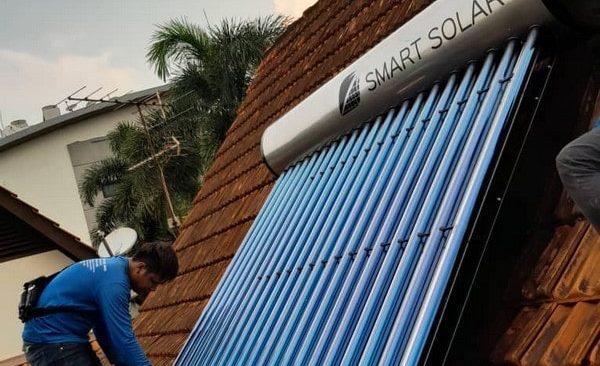
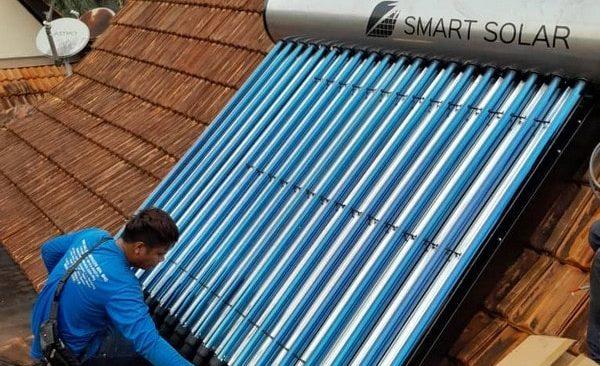

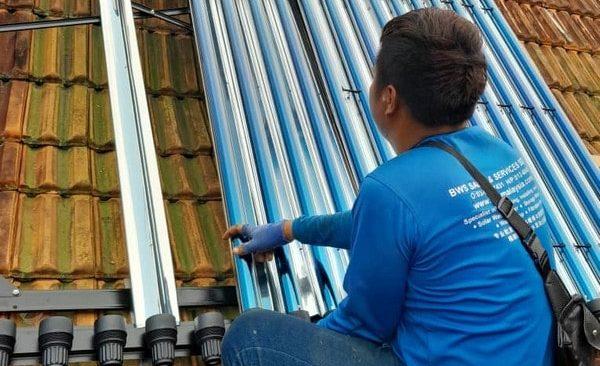
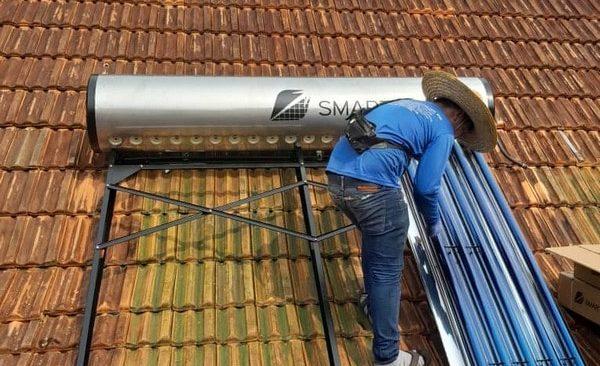
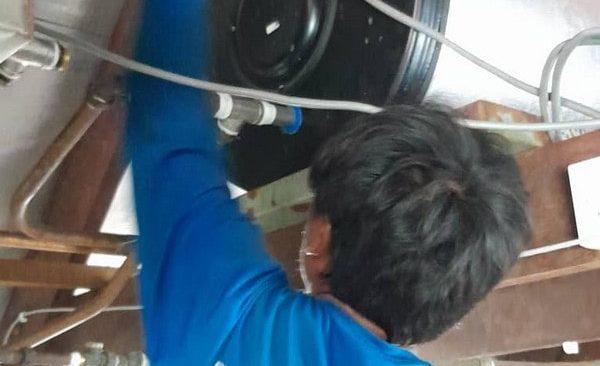

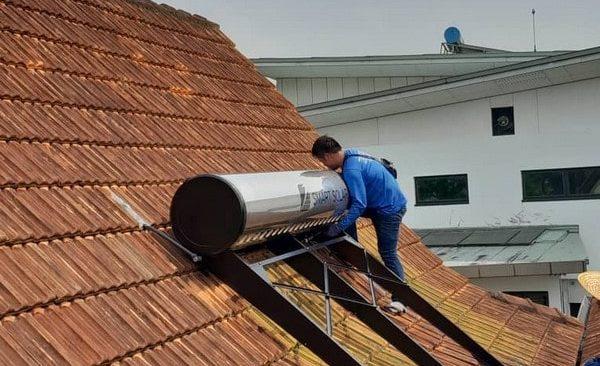

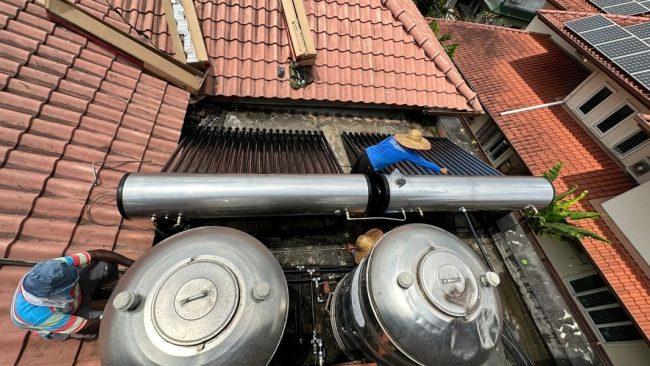

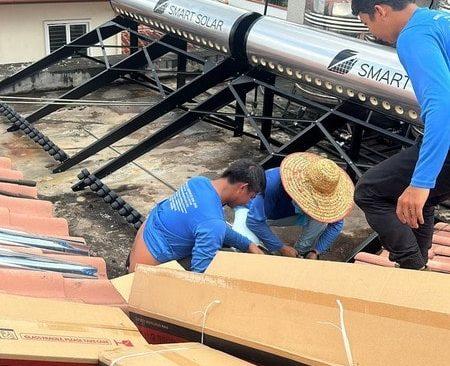
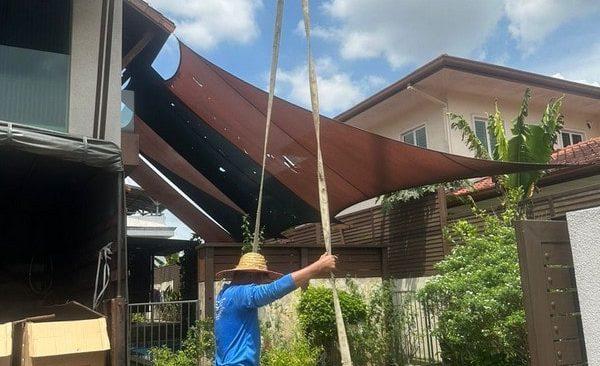
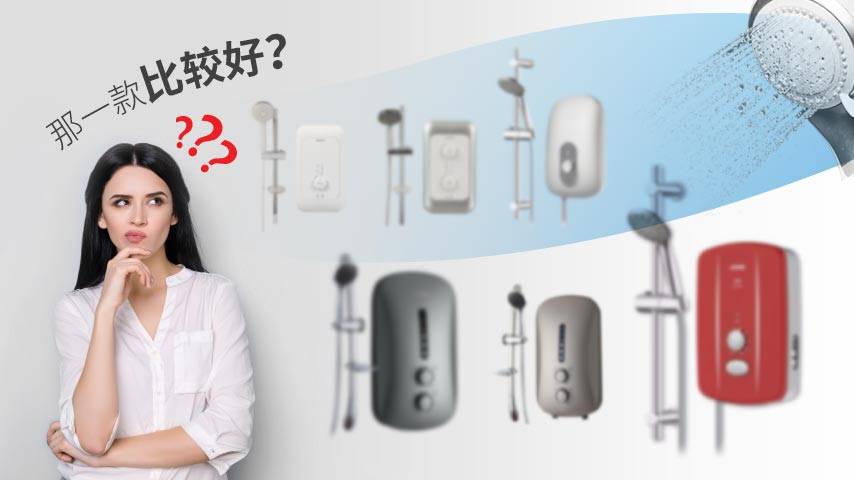
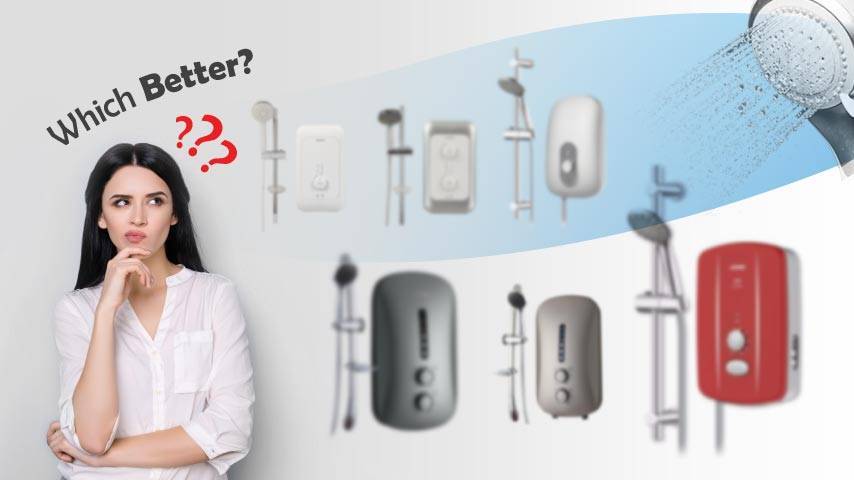

 [/vc_column_text][ut_custom_heading font_source=”websafe” font_size=”13″ line_height=”130″ font_weight=”300″ color=”#696969″ css=”.vc_custom_1545970861122{margin-top: 10px !important;margin-bottom: 0px !important;padding-top: 0px !important;padding-bottom: 0px !important;}”]
[/vc_column_text][ut_custom_heading font_source=”websafe” font_size=”13″ line_height=”130″ font_weight=”300″ color=”#696969″ css=”.vc_custom_1545970861122{margin-top: 10px !important;margin-bottom: 0px !important;padding-top: 0px !important;padding-bottom: 0px !important;}”]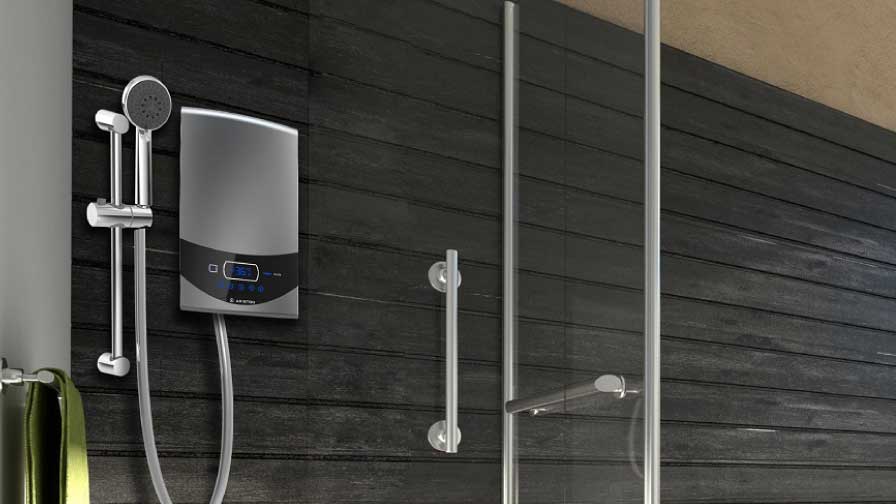
 [/vc_column_text][ut_custom_heading font_source=”websafe” font_size=”13″ line_height=”130″ font_weight=”300″ color=”#696969″ css=”.vc_custom_1545897800069{margin-top: 15px !important;margin-bottom: 0px !important;padding-top: 0px !important;padding-bottom: 0px !important;}”]
[/vc_column_text][ut_custom_heading font_source=”websafe” font_size=”13″ line_height=”130″ font_weight=”300″ color=”#696969″ css=”.vc_custom_1545897800069{margin-top: 15px !important;margin-bottom: 0px !important;padding-top: 0px !important;padding-bottom: 0px !important;}”]